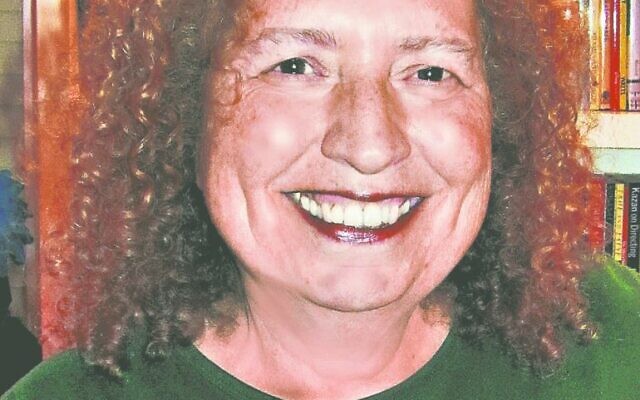Mom Inspires by Musing
Chana relays a moving tribute to an inspirational figure – her mother.
Chana Shapiro is an educator, writer, editor and illustrator whose work has appeared in journals, newspapers and magazines. She is a regular contributor to the AJT.
While sitting shiva for my father, I reminisced with my mother, brother, and sister. We were acutely aware of the preciousness of mom, our only living parent, and we were all ears as she mused about her own legacy. My mother never boasted or looked for recognition, so we didn’t know what to expect.
Mom began with this anecdote, “I made sure there is a monument for Uncle Louie’s grave.”
After Louie’s closest relative died (his sister—my maternal grandmother), my mother tried to stay in touch with him, but no one knew where he lived, and he had no phone. Mom belatedly learned from social services of his death. Louie had been buried as an indigent with a small grave marker. The fact that her Uncle Louie was laid to rest with no headstone troubled my mother. She was determined to honor and memorialize Louie by etching in granite the fact of his corporeality. “I wanted people to know that Louie existed.” Mom explained.
Mom continued, recollecting a second achievement, a miracle. “I saved my little brother’s life.”
Her other brother, Bernard, was drafted in World War II, and he entrusted his car to his father, my maternal grandfather, who was instructed to drive only inside his home city, St. Louis, not the 117 miles to Effingham, Ill., where my parents lived.
But, in 1944, when I was one year old, my determined grandfather drove toward Effingham with my grandmother, their son, Joel, my grandfather’s sister, Cecile, and her husband, Dave, as passengers.
Halfway there, they were hit by a large truck, and Bernard’s car was wrecked. Everyone in the car was critically injured, and all were taken to a small Catholic hospital in nearby Pocahontas, Ill. My grandfather had a crushed pelvis and a concussion, my grandmother, whose back was broken, was told she would never walk again. Cecile and Harry had broken bones and internal injuries.
Seven-year-old Joel was not expected to live. Upon receiving the call from the Pocahontas hospital, my parents immediately drove there, where they learned that Joel needed blood, but the tiny hospital, unlike hospitals in St. Louis, had no equipment for a transfusion. My mother, who boldly assumed that she and Joel had compatible blood, somehow convinced the doctors to rig up a person-to-person simultaneous transfusion. With my mother on a cot abutting Joel’s hospital bed, she replenished Joel’s lost blood with her own. For hours, as the story goes, my father paced and prayed, while I played with a couple of nun/nurses.
Here’s the miraculous part: My father’s simple, sincere prayers were answered. My grandfather, although severely scarred, eventually recovered, and my grandmother regained her ability to walk. (She and my grandfather danced at my wedding 20 years later.) Cecile and Dave recovered, too. Joel was left with facial scars and brain-injury-induced seizures, but, because of my mother’s incredible tenacity and daring, and G-d’s will, he is still alive (he’s now 85 years old.)
Mom continued, “I reunited the Pasternaks.”
Four Pasternak siblings, all in their eighties, lived across the street from my parents who had moved from Illinois to St. Louis. The Pasternaks told my mother about escaping Germany at the beginning of the Third Reich.
On an Atlanta visit, my parents joined us at a friend’s party, where my mother met an elderly couple, whose surname was Pasternak. She guided the conversation by telling the couple about her St. Louis Pasternak neighbors, and an emotional session of Jewish geography ensued. The Atlanta Pasternaks were from the same German town from which mom’s neighbors had escaped. Mr. Pasternak cried, “Your neighbors must be my cousins. I thought everyone had died in the camps!” Of course, the Atlanta Pasternaks soon visited and reunited with their family in St. Louis. My parents picked them up at the airport.
Mom was grateful for the opportunities to do something important no one else could or would do. She challenged the assumptions of Louie’s insignificance, of her brother’s expected fate, of Mr. Pasternak’s sorrowful family assumption. My mother’s reflection on these events was illuminating to my siblings and me. We saw our haimishe, modest mother as a woman of action, a brave “do-er,” and inspiring role model.




comments